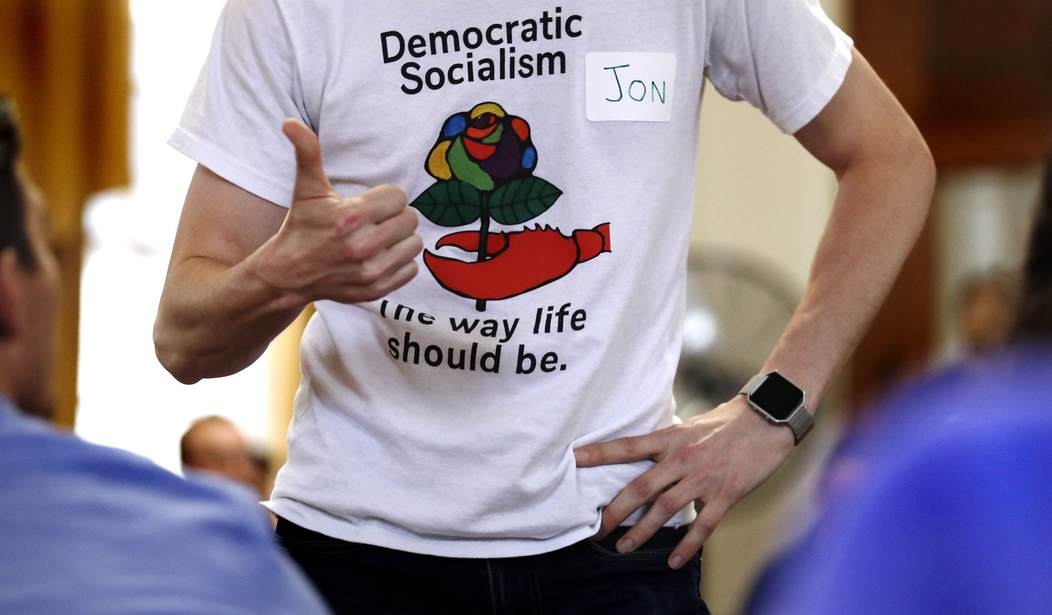Mayor-elect Zohran Mamdani is flying high and sitting pretty. He just bamboozled more than a million New Yorkers into voting for him and his "affordability" agenda.
If he didn't bamboozle them, we are in deep, deep trouble because it means he actually believes his own nonsense. Suppose there's a mayor who actually believes that food prices can be made "affordable" again, or the cost of a new or used car will come down, or housing prices and rent will magically drop to 2020 levels. In that case, we should prepare for economic Armageddon. The scourge of deflation will be approaching, and it will be harder to stop prices from going into free fall than it would be to stop runaway inflation.
When Mamdani talks about "affordability," he's just using another term to describe "free stuff." I doubt very much whether inflation or deflation concerns him.
Fortunately, Democrats who are pushing this "affordability" agenda aren't really serious. It's the left-wing version of economic populism, as promoted by Mamdani. Free buses, rent control, free child care, city-run grocery stores, kinder, gentler cops, and criminals who will promise on their honor to no longer rape, steal, kill, maim, or jaywalk if judges take it easy on them.
Related: Methinks the Democrats Doth Celebrate a Bit Too Much
National Democrats who run in 2026 on "affordability" will be sleepwalking into disaster. They know that they can't command the economy to return to 2020 and sell eggs for $1.30 a dozen instead of today's $3.50 a dozen. They may try to subsidize the price of eggs. That's what all self-respecting socialists do.
Of course, subsidies encourage egg buying, which will create shortages and drive egg prices even higher. Democrats may be able to repeal common sense, but they can't repeal the laws of supply and demand.
"Rather than suggesting beneficial economic reforms, the affordability mantra too often leads to 'free lunch' thinking and political giveaways," writes Tyler Cowen in The Free Press.
I am not opposed to “affordability” as an abstract concept. For instance, I find food prices shockingly high, even in so-so restaurants, and I wish the prices were lower. And if I were in charge of the economy, I would try to lower costs. But there are only so many ways to do that. One option would be to deregulate the energy sector, easing permitting for solar, wind, and nuclear power. Over a five- to 10-year time horizon, that would lead to cheaper energy and, indirectly, to modestly lower food prices. I would also repeal the Trump tariffs, which artificially inflate the cost of foreign goods. I might also refrain from minimum wage increases, which only cause the price of food to rise further.
But even in the best-case scenario, all of those actions would make food just a bit cheaper than it would be otherwise. I would hardly expect voters to hail my reign as a major triumph, or ask for more of the same. Instead, they might flock to the candidate who promises government-run grocery stores or price controls. Sound familiar?
A far wiser course than trying to command prices to cease rising and return to where they were five years ago would be to adopt policies that lead to gradually increasing wages. There are several ways to accomplish this, including increasing competition for workers among companies, improving the efficiency of their workplace, investing in new technology, and increasing access to training. This is something we can do immediately.
There's still no way to snap your fingers and increase wages at a reasonable rate, but lessening the dead hand of government regulation would go a long way to making workers more productive and companies more profitable.
Republicans should try to avoid this "affordability" trap, which will only be a distraction from promoting the opportunity agenda. What's needed in the economy isn't price controls or other affordability gimmicks. What's needed is a common-sense approach to raising wages without artificial command mechanisms like minimum wages or wage "floors."
Making it easier for workers to succeed on the job is far better than giving them free stuff that will only make the rest of their lives more expensive.










